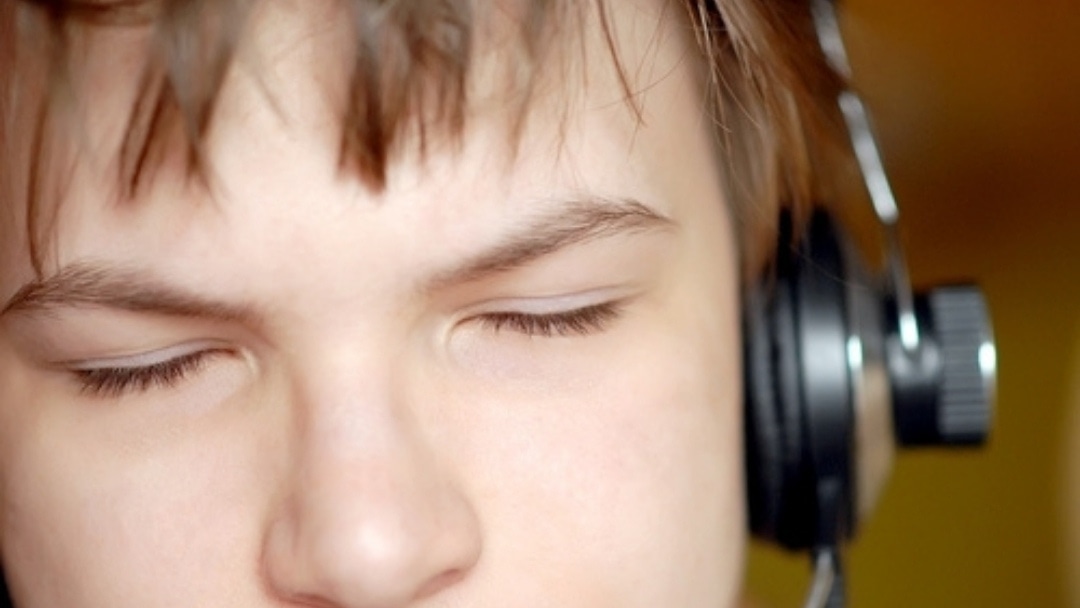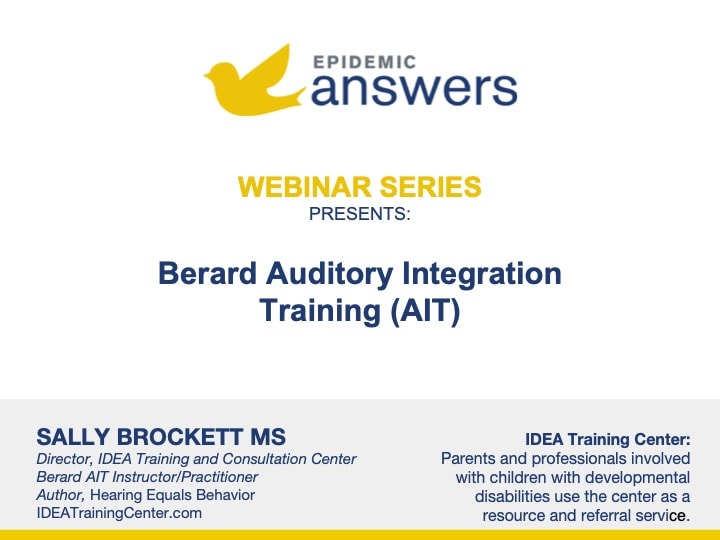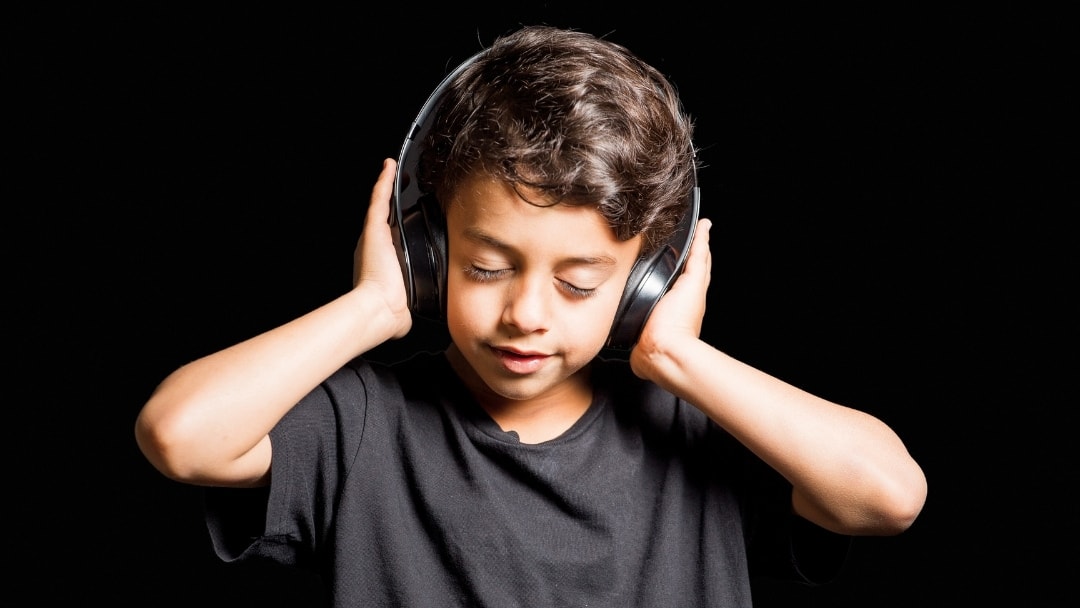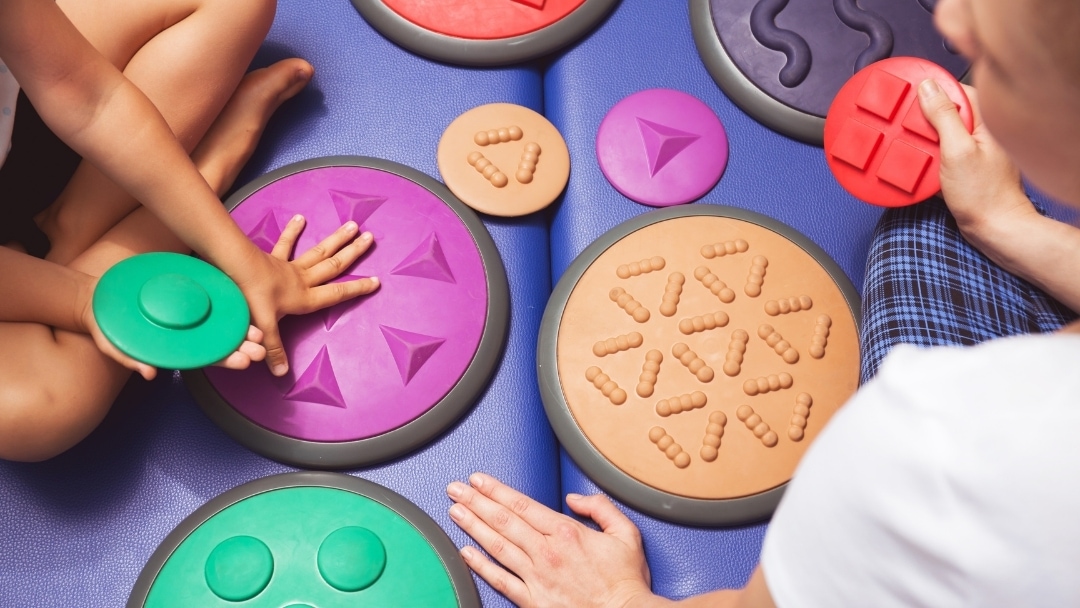There are a few different types of auditory therapy that can retrain the brain to help normalize hearing, senses and brain processing. These approaches can help improve:
- Auditory processing
- Sensory processing
- Speech
- Language
- Focus
- Concentration
- Balance
- Coordination
- Memory
- Cognitive skills
- Academic skills
- Social skills
- Communication skills
- Eye contact
- Auditory comprehension
- Articulation
- Creativity
- New neural pathways
Most notably, there is a reduction in:
- Sound sensitivities
- Aggressive behaviors
- Hyperactivity
- Echolalia
- Distractibility
- Meltdowns
The following is a list of symptoms, conditions and disorders that have benefited from these two types of auditory therapy:
- Attention Deficit Hyperactivity Disorder (ADHD)
- Aphasia
- Autism Spectrum Disorders
- Auditory Processing Disorders (APD)
- Behavioral issues
- Central Auditory Processing Disorders (CAPD)
- Cerebral palsy
- Cocktail Party Syndrome (sound field discrimination issues)
- Depression
- Down’s Syndrome
- Dyslexia
- Emotional regulation
- Hyperlexia
- Hyper-sensitive hearing
- Hypo-sensitive hearing
- Learning Disorders (LD)
- Speech and language issues (delays, stuttering and stammering)
- Non-Verbal Learning Disorders (NVLD)
- Tinnitus
- Mild hearing loss
- Non-verbal children
- Receptive and expressive language disorders
- Sensory Processing Disorder
Auditory Integration Therapy
Auditory Integration Therapy (AIT) is a type of auditory therapy that was developed by Dr. Guy Berard in France. Initially Dr. Berard worked with Dr. Alfred Tomatis, but eventually went back to school and became an ear, nose and throat specialist so that he could develop his own device and protocol. Dr. Berard reduced the time required by Dr.Tomatis’ method and implemented some different protocol changes.
AIT, also known as the Berard method, is done for two half hours per day over a period of 10 consecutive days of listening to music with specific headphones. The music used with the Berard method is usually lively and often times current music of the day. His work emphasized auditory stimulus which impacted behavior and language.
Sound Stimulation Therapy
Sound Stimulation Therapy is a type of auditory therapy based on the work of Dr. Alfred Tomatis of France who was an ear, nose and throat specialist. Dr. Tomatis’ method, typically known as just the Tomatis method, consisted of “listening training”. He developed a theory regarding the development of hearing in utero and the impact of auditory stimulus on every aspect of a child’s development including movement processing.
The Tomatis method uses Mozart music, Gregorian Chants and the mother’s voice. Listening requires two hours per day and 30 hours over a ten week period with specific headphones. Younger children listen to music while in movement on sensory integration equipment, while older children read while listening to music to help improve reading comprehension and language.
Sound Stimulation Therapy is based on the major concepts of Dr. Tomatis and geared toward the impact of listening on learning, academics and vocal expression.
The Listening Centre is located in Toronto, Canada http://www.listeningcentre.com/
Still Looking for Answers?
Visit the Epidemic Answers Practitioner Directory to find a practitioner near you.
Join us inside our online membership community for parents, Healing Together, where you’ll find even more healing resources, expert guidance, and a community to support you every step of your child’s healing journey.
Sources & References
Porges, S.W., et al. Reducing auditory hypersensitivities in autistic spectrum disorder: preliminary findings evaluating the listening project protocol. Front Pediatr. 2014 Aug 1;2:80.
Porges, S.W., et al. Respiratory sinus arrhythmia and auditory processing in autism: modifiable deficits of an integrated social engagement system? Int J Psychophysiol. 2013 Jun;88(3):261-70.
Schoen, S., et al. A Pilot Study of Integrated Listening Systems for Children with Sensory Processing Problems. Journal of Occupational Therapy Schools & Early Intervention. July 2015. 8(3):256-276.
Resources
Brownstone, A., et al. CASE STUDY: The Use of iLs with Cochlear Implants. Jean Weingarten Peninsula Oral School for the Deaf, Redwood City, CA, January 26, 2014.
Calhoon, J.A., et al. Early Intervention: a longitudinal study of reading and reading-related achievement of 64 students in kindergarten through second grade enrolled in the alpha program. College of Education, University of New Mexico, September 3, 2009.




